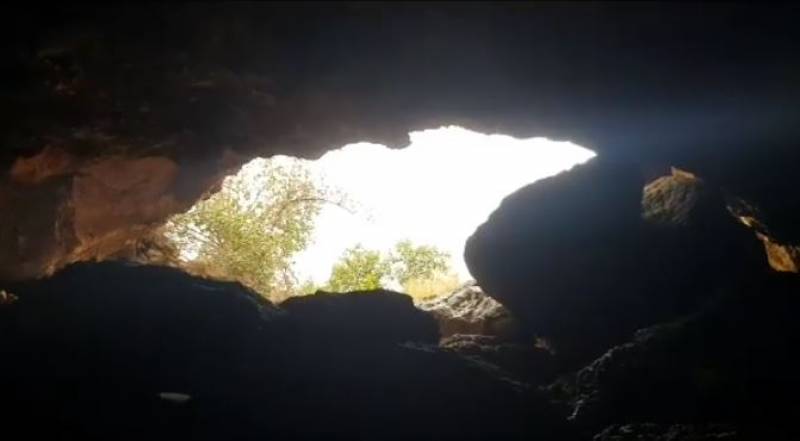- Region
- Vega baja
- Marina Alta
- Marina Baixa
- Alicante
- Baix Vinalopo
- Alto & Mitja Vinalopo
-
ALL TOWNS
- ALICANTE TOWNS
- Albatera
- Alfaz Del Pi
- Alicante City
- Alcoy
- Almoradi
- Benitatxell
- Bigastro
- Benferri
- Benidorm
- Calosa de Segura
- Calpe
- Catral
- Costa Blanca
- Cox
- Daya Vieja
- Denia
- Elche
- Elda
- Granja de Rocamora
- Guardamar del Segura
- Jacarilla
- Los Montesinos
- Orihuela
- Pedreguer
- Pilar de Horadada
- Playa Flamenca
- Quesada
- Rafal
- Redovan
- Rojales
- San Isidro
- Torrevieja
- Comunidad Valenciana
Date Published: 21/01/2025
Cartagena studies limiting access to Cueva del Agua after diver's death
A 37-year-old woman died while diving in the cave system this weekend, the fifth person who has lost their life there in since 1990
 Cartagena City Council is preparing to regulate access to the Cueva del Agua, a renowned cave diving site in Isla Plana, following the recent death of a 37-year-old diver.
Cartagena City Council is preparing to regulate access to the Cueva del Agua, a renowned cave diving site in Isla Plana, following the recent death of a 37-year-old diver.The incident in the cave, which has claimed five lives over the past four decades, has prompted local authorities to commission a study on improving safety measures.
The tragic incident occurred on Saturday night, January 18, when the deceased became trapped while diving with a companion. Her body was recovered by the Guardia Civil’s Special Group of Underwater Activities (GEAS) after a two-hour search.
In response, the City Council has announced plans to collaborate with experts, firefighters and potholing associations to establish stricter regulations.
“The goal is to ensure that dives are carried out with the highest safety guarantees,” municipal sources said.
The Cueva del Agua attracts divers from across the world, particularly from Europe and the United States, drawn by its challenging labyrinth of passages. According to local residents, the site sees numerous dives weekly, with peaks of up to 20 per day during the summer.
Divers are required to complete specialised cave diving courses to enter, and only experienced professionals are allowed to explore the cave.
Despite these precautions, the risks remain significant. Cave diving differs from open-water diving as it involves navigating enclosed spaces where direct ascents to the surface are impossible. Experts emphasise the importance of training and preparation to minimise risks.
The site’s history includes several high-profile incidents, such as a 2017 rescue operation for a diver trapped for five hours and the deaths of two GEAS officers in 1996. While these events are rare relative to the volume of dives, they highlight the dangers of the sport and of this particular site.
The council’s latest initiative aims to balance the cave’s appeal as a premier diving destination with enhanced safety protocols, seeking to reduce the risks while preserving the site’s allure for diving enthusiasts.
Image: Federación de Espeleología de la Región de Murcia
staff.inc.ali
Loading
Sign up for the Spanish News Today Editors Roundup Weekly Bulletin and get an email with all the week’s news straight to your inbox
Special offer: Subscribe now for 25% off (36.95 euros for 48 Bulletins)
OR
you can sign up to our FREE weekly roundup!
Read some of our recent bulletins:
Discount Special Offer subscription:
36.95€ for 48 Editor’s Weekly News Roundup bulletins!
Please CLICK THE BUTTON to subscribe.
(List price 3 months 12 Bulletins)
Read more stories from around Spain:
Contact Murcia Today: Editorial 000 000 000 /
Office 000 000 000


































